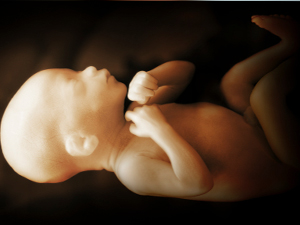 The Vatican had strong words for U.N. experts who accused the Catholic Church of torture because of its teaching on abortion.
The Vatican had strong words for U.N. experts who accused the Catholic Church of torture because of its teaching on abortion.
“The Holy See condemns the torture of anyone, including those tortured and killed before they are born,” said Archbishop Silvano Tomasi, Apostolic Nuncio at the United Nations in Geneva.
For the second time this year, a Vatican delegation was in Geneva to discuss the obligations of the Holy See under international law with U.N. experts, and for the second time Catholic doctrine on abortion was at issue, drawing media attention and criticism for the mostly obscure U.N. committees.
Tomasi was reporting on the Vatican’s implementation with the U.N. treaty against torture, which it ratified in 2002. Experts on the U.N. committee against torture suggested the Church’s teaching on the inviolable dignity of human life is a form of torture.
“Late-term abortion constitutes torture,” Tomasi said in reply to questions from Felice Gaer, an American expert.
He accused Canada and the United Kingdom of being guilty of torture by allowing late-term abortions where children are left to die without any medical care after they are born alive.
The Archbishop said the Vatican has no power to impose its doctrine, but that Catholics worldwide provide maternal health care, alternatives to abortion, and help women physically and spiritually after an abortion. He cautioned against interfering with the exercise of religious freedom.
Tomasi warned against “ideological” attacks against the Catholic Church in an interview on Vatican Radio last week. He said the committee would discredit itself if it showed bias.
Some experts sounded a conciliatory note after Tomasi’s comments.
“We all know the position of the Holy See on abortion,” said George Tugushi, from the nation of Georgia. The committee was concerned with cases where women are stigmatized after undergoing an abortion, he said, and not church doctrine.
The Chair of the Committee, Claudio Grossman, was also conciliatory. He also denied having a conflict of interests after news articles said his impartiality was compromised due to his support for same-sex marriage and abortion advocacy.
Felice Gaer was not conciliatory. The vice-chair of the committee said the Church’s moral stance on abortion was a “concern.”
“Women should have the legal right to chose abortion,” Gaer said. Her questions were drawn from a memo from the Center for Reproductive Rights, a group that defends late-term abortion and has challenged bans on partial-birth abortion in U.S. courts.
The U.N. committee against torture has told countries that restrictions on abortion in cases of rape are a form of torture on several occasions. This follows a scheme to interpret human rights treaties to include a right to abortion in which the Center for Reproductive Rights is an active participant. Presently, abortion is not a human right.
Gaer, who is not a lawyer, said the committee abided by the “strict meaning of the [torture]convention.”
While the convention defines torture broadly, it requires a state or state officials to perpetrate, instigate, or condone acts of torture. Controversially, the committee has dispensed with that requirement in certain cases of sexual abuse.
Some want to expand the definition of torture even more.
The committee asked questions based on information submitted from lawyers representing victims of clergy sex abuse. The Los Angeles Times reports the lawyers want clergy sex abuse to come under the definition of torture to circumvent state statutes of limitations. At one point Gaer asked how much money the Vatican had available to compensate victims of clergy sex abuse.
Tomasi detailed the Vatican’s response to the sex abuse scandal and its ongoing efforts to protect children. He insisted the Vatican was not guilty of torture in this regard.
The committee will publish written observations on the Vatican’s report by the end of May. The observations are neither binding nor authoritative.



